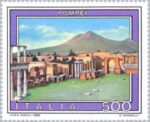![[Flag of Canada]](https://riverhouses.org/wp-content/uploads/2022/10/flag-canada-150x75.jpg) Cultural understanding develops from the storehouse of facts and experiences that you impart to your homeschool students as you teach them from day to day. To appreciate a complex and beautiful piece of art or literature or music, for example, your students must first learn a great deal about the world — names, places, people, and events that may seem to be unrelated.
Cultural understanding develops from the storehouse of facts and experiences that you impart to your homeschool students as you teach them from day to day. To appreciate a complex and beautiful piece of art or literature or music, for example, your students must first learn a great deal about the world — names, places, people, and events that may seem to be unrelated.
This is a little lesson about a piece of music, but it begins with an anniversary. On this day in 1845, one of the most famous sailing voyages of the nineteenth century began — and with it, one of that century’s greatest mysteries.
On the 19th of May in 1845, British naval officer Sir John Franklin sailed from Greenhithe in England with two ships, HMS Erebus and HMS Terror, in the hopes of discovering the Northwest Passage, the postulated route from the Davis Strait off the west coast of Greenland to the Beaufort Sea above Alaska that would eliminate the need to sail all the way around the tip of South America (“around the Horn”) to get to the Far East. They sailed from Greenhithe on this day, and Franklin and his expedition, 129 men in all, were never heard from again.
![[HMS Erebus]](https://upload.wikimedia.org/wikipedia/commons/thumb/6/6a/HMS_Erebus_in_the_Ice%2C_1846_RMG_BHC3325.tiff/lossy-page1-1024px-HMS_Erebus_in_the_Ice%2C_1846_RMG_BHC3325.tiff.jpg)
You could develop an entire homeschool curriculum based on the Franklin expedition, its disappearance, and the search for the Northwest Passage. Many additional ships were sent in search of Franklin, and some did find scraps of evidence. Interviews with Inuit hunters turned up reports of starving men seen years before who appeared to be shipwreck survivors. But the ships themselves and what happened to them remained a mystery.
Or at least it did until quite recently. For a number of years the Canadian national park service has been conducting research on the fate of the Franklin expedition, and in 2014, in a remarkable feat of underwater archeology, they discovered HMS Erebus, almost completely intact, resting on the sea floor near King William Island in Nunavut (Northwest Territories), in the Canadian arctic. Two years later, in 2016, they discovered HMS Terror about 50 miles farther north. You can read about these remarkable discoveries on the Parks Canada website:
But this is a little lesson about a piece of music.
The great Canadian folk singer Stan Rogers, who died tragically in an airplane fire in 1983, wrote a small masterpiece called “Northwest Passage” that has become a kind of second national anthem for Canada. It tells the story of a modern traveler driving along well-paved highways in the far north, and imagining the explorers, like Franklin, who went before him.
Here’s the trailer for a documentary film on Rogers’ life and art, “One Warm Line,” that features this song. With the historical background above — the names and places and events — your students will be able to appreciate its rich cultural and historical context and understand what a real gem it is:
And here’s a magnificent studio recording of the full song:
Why not sit down this week with your students and have a special lesson in art, culture, geography, and history — an example of homeschooling at its best. Take out your homeschool atlas, and listen to Stan Rogers, and follow the hand of Franklin reaching for the Beaufort Sea.
What artistic discoveries have you and your students made in your homeschool this Leo Term? 😊
❡ Lift every voice: This is one of our occasional posts on Homeschool Arts & Music. Add your name to our weekly mailing list and get great homeschool teaching ideas delivered right to your mailbox all through the year. 📫
❡ Homeschool calendars: We have a whole collection of free, printable, educational homeschool calendars and planners available on our main River Houses calendar page. They will help you create a light and easy structure for your homeschool year. Give them a try today! 🗓
❡ Support our work: If you enjoy our educational materials, please support us by starting your regular Amazon shopping from our very own homeschool teaching supplies page. When you click through from our page, any purchase you make earns us a small commission at no extra cost to you. Thank you for helping us to keep going and growing! 🛒
❡ Join us! The aim of the River Houses project is to create a network of friendly local homeschool support groups — local chapters that we call “Houses.” Our first at-large chapter, Headwaters House, is now forming and is open to homeschoolers everywhere. Find out how to become one of our founding members on the Headwaters House membership page. 🏡




